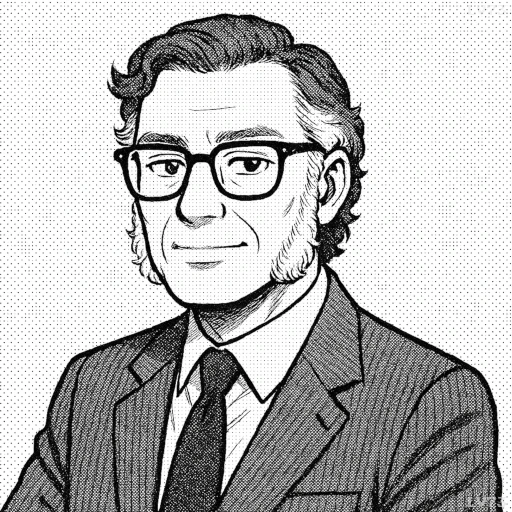“John Dalton’s records, carefully preserved for a century, were destroyed during the World War II bombing of Manchester. It is not only the living who are killed in war.”

- January 2, 1920 – April 6, 1992
- Born in Russia
- Author, biochemist (professor)
table of contents
Quote
“John Dalton’s records, carefully preserved for a century, were destroyed during the World War II bombing of Manchester. It is not only the living who are killed in war.”
Explanation
In this poignant quote, Asimov reflects on the destruction of knowledge during times of war. The loss of John Dalton’s records—which contained invaluable historical and scientific information about atomic theory—serves as a metaphor for the broader consequences of war, where not just lives are lost but also intellectual heritage. Asimov is underscoring how the legacy of human progress, painstakingly built up over generations, can be destroyed in an instant, sometimes in ways that are just as irreparable as the loss of human life. His statement also touches on the tragic irony that war, which often arises from disputes over power or ideology, can obliterate the very knowledge that might have helped prevent or resolve such conflicts.
Asimov, writing in the mid-20th century, was deeply affected by the events of World War II, having witnessed firsthand the massive destruction and upheaval it caused. The bombing of cities like Manchester, where both cultural heritage and scientific records were lost, highlights the ways in which war reaches far beyond the battlefield, claiming its toll on civilization as a whole. Dalton, a pivotal figure in chemistry and physics, contributed greatly to the understanding of atomic structure. The fact that his records were lost during the war symbolizes how cultural and scientific achievements can be rendered vulnerable by violence, and how future generations are deprived of the benefits of accumulated knowledge when that knowledge is destroyed.
In the modern world, Asimov’s quote serves as a reminder of the fragility of our historical and intellectual legacy. Whether it is through natural disasters, acts of terrorism, or wars, the loss of important records, artifacts, and knowledge still poses a threat to human progress. In today’s digital age, where vast amounts of information are stored electronically, the need to preserve knowledge and protect intellectual resources has never been more important. Asimov’s reflection calls attention to the ongoing responsibility of society to safeguard the insights and wisdom of the past, recognizing that the destruction of knowledge, like the destruction of life, can have long-lasting consequences.
Would you like to share your impressions or related stories about this quote in the comments section?

